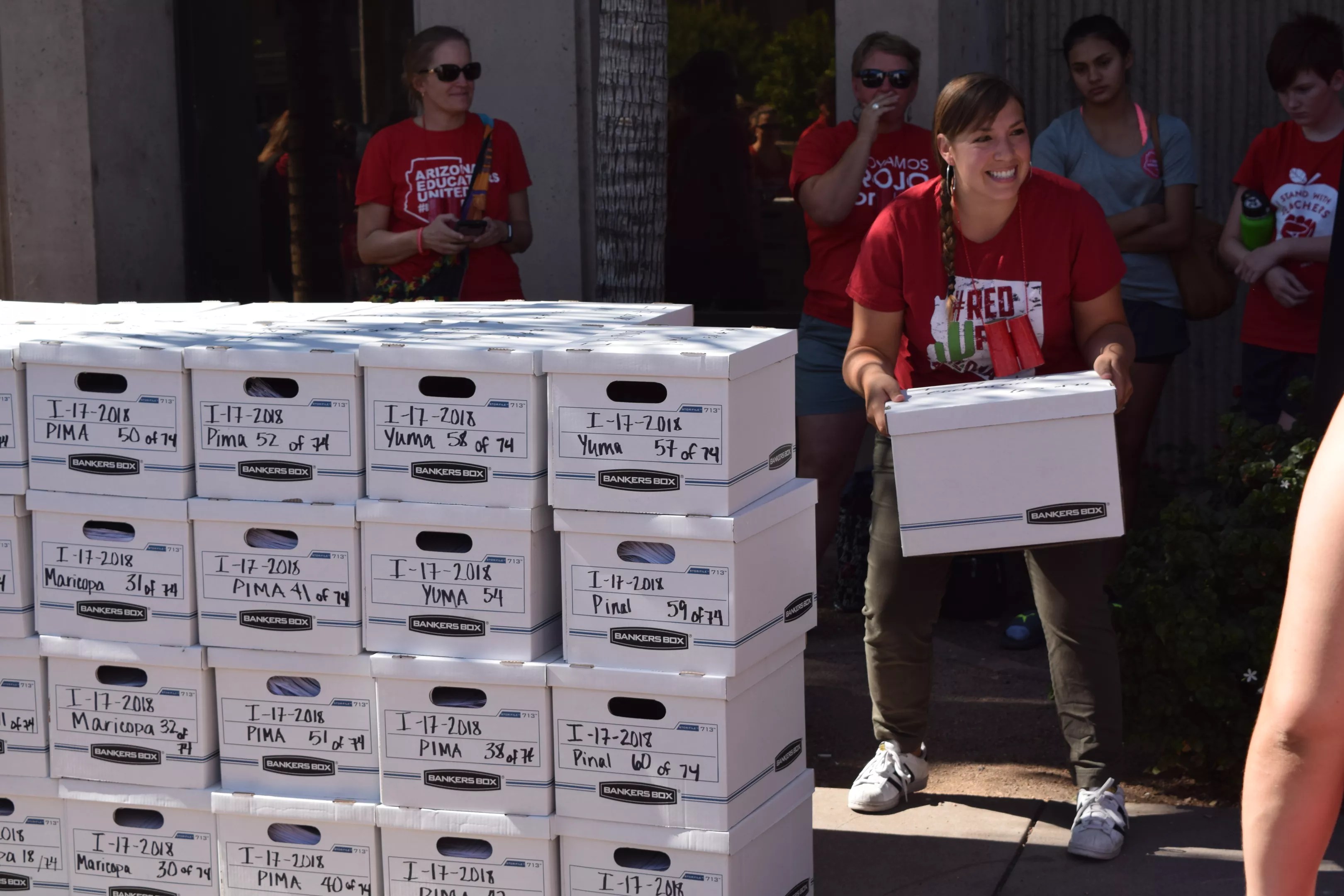
Joseph Flaherty

Audio By Carbonatix
Judging by the early returns on election night, taxing the rich might be popular in historically conservative Arizona.
Proposition 208, a ballot measure that would tax wealthy Arizonans to pay for public K-12 education, is currently passing by a wide margin.
The initiative, also referred to as Invest in Ed, has garnered 53 percent of the vote statewide so far, while 46 percent of Arizonans have voted against it, according to results posted by the Arizona Secretary of State. That margin was logged with 79 percent of precincts reporting as of 11:15 p.m. on election night.
As written, Proposition 208 would levy a 3.5 percent tax on people earning more than $250,000, and on married couples taking in over $500,000. A majority of the tax revenue would be invested in teacher and support staff salaries, while smaller portions would go to technical education programs, teacher retention programs, and a scholarship for teachers-in-training who commit to working in Arizona schools. Analysts with the Joint Legislative Budget Committee estimate that the measure will raise over $800 million in its first year.
For proponents of the measure, just getting Proposition 208 on the ballot has been a battle. Backers pushed a similar initiative back in 2018, only to have it tossed off the ballot by the state Supreme Court, who said that it was misleading. Two years later, a Maricopa County Superior Court judge issued a negative ruling in a lawsuit against the measure that had been filed by a group backed by the Arizona Chamber of Commerce. Once again, the ruling booted Invest in Ed from the ballot (citing misleading language). But this time, the state Supreme Court sided with the initiative, sending it to voters for the general election.
Once it was cleared for the November ballot, the fight over Proposition 208 became fiercer, and expensive. Business interests, Libertarian think tanks, and Governor Doug Ducey argued that the measure would be a job killer and would unfairly burden small business owners. Supporters countered that the claim about small businesses was misleading, saying the initiative only taxes high income-earning individuals and businesses. They also argued that Arizona’s education system is woefully underfunded and the state economy will benefit from better public schools. Critics and backers of the measure issued a dizzying array of reports and research papers about the merits and detriments of Proposition 208.
The Arizona Chamber of Commerce dropped over $8.6 million in a final effort to kill the initiative at the ballot box, according to the Arizona Daily Star. But proponents of the measure raked in millions to get Proposition 208 over the finish line: The initiative’s committee recently reported over $20 million in contributions, with almost $8 million of that coming from the National Education Association.